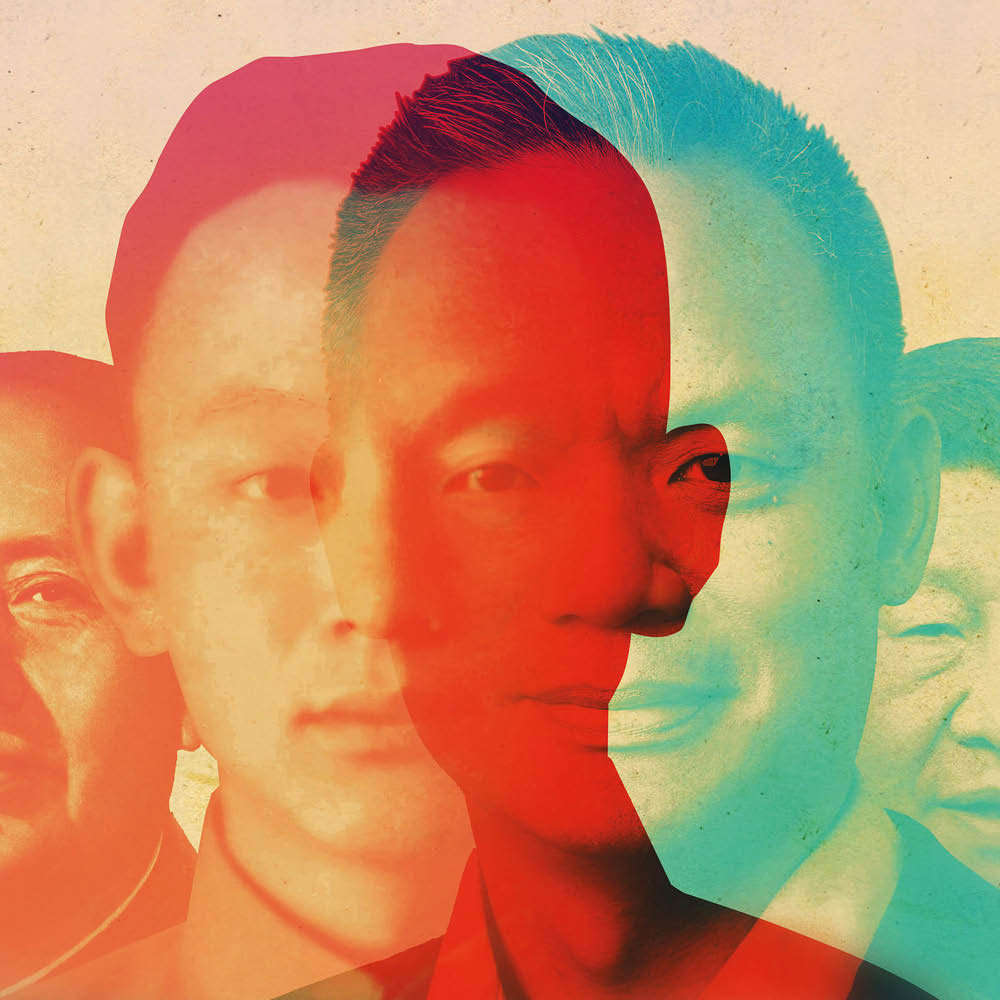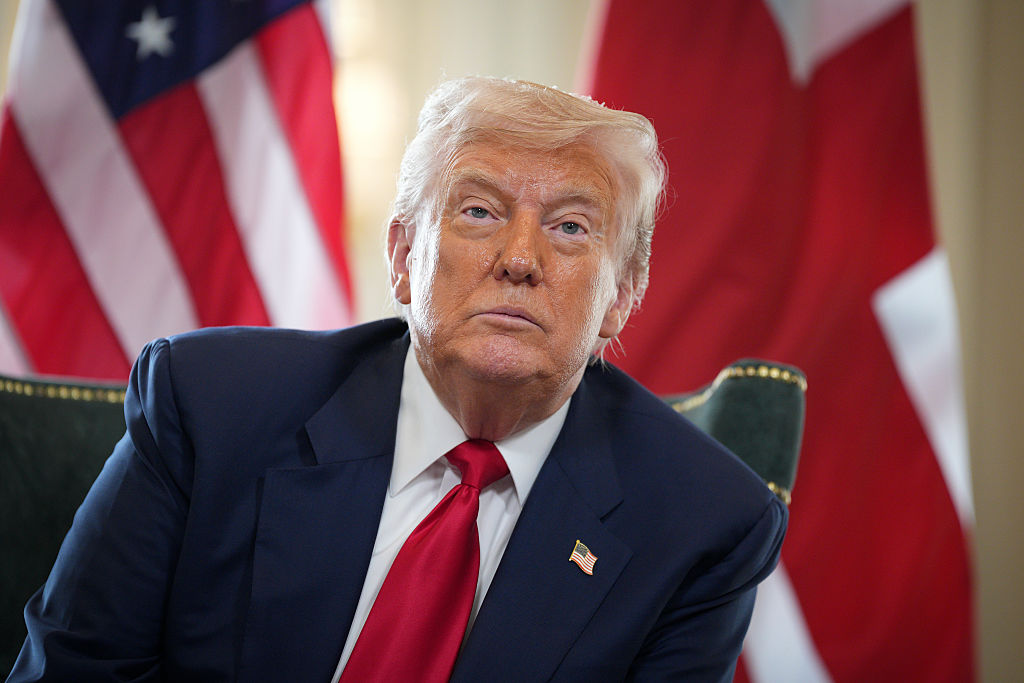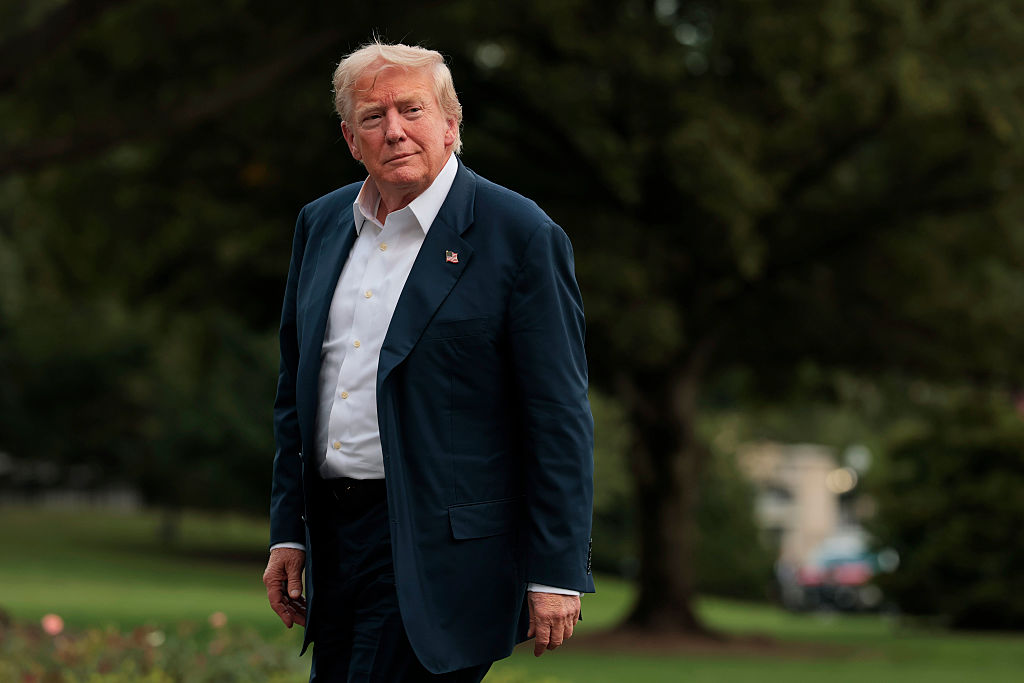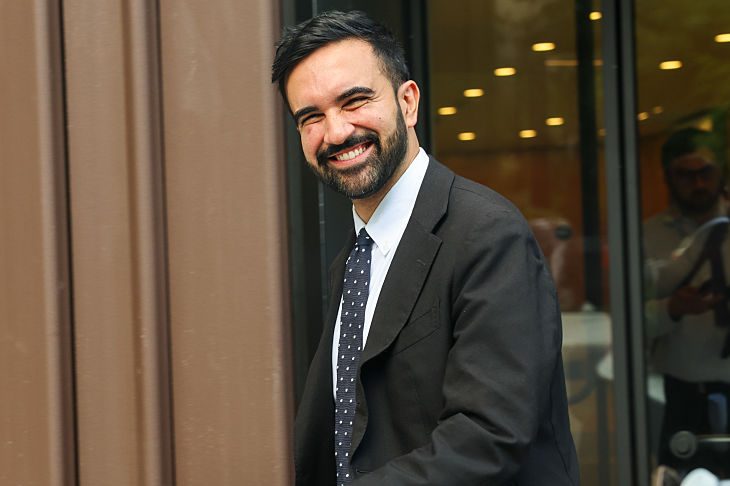From 2008 to 2016, Edward Wong reported on China for the New York Times, heading up its Beijing bureau.
Last year, the veteran journalist, now the Times’s diplomatic correspondent, published his first book: a blend of family memoir, narrative history, political observation and personal reckoning.
At the Edge of Empire tracks Wong’s father, Yook Kearn Wong, as he moves from fervent support of the Chinese Communist Party and its ideological goals to disillusionment and disappointment. It is also a book about what makes an empire. Born in Hong Kong before moving to Guangdong Province as a child, after joining the military as a young man Yook Kearn was posted to remote Xinjiang province, in China’s northwest corner.
“My father came to the empire as an outsider,” says Wong, over tongue-numbing Sichuan food in Manhattan, where he met The Spectator. “And, so, the book is a journey narrative taking you across the entire Chinese empire.” The following conversation has been edited for length and clarity.
What inspired you to write At the Edge of Empire?
I had spent years in China, I had studied it for a couple of decades, so I felt I had observations I wanted to put out there. The question was: how do you draw the average reader who doesn’t know about China into a compelling narrative?
One way to do that was to base the story around your father…
I needed characters, I needed a narrative story that’s chronological. My dad was born in Hong Kong, went to China and stayed on there through the rest of his childhood… He graduated into communist rule in 1950 and then spent twelve years helping to realize Mao’s vision of China.
When did your father first feel disenchantment with the direction China was taking?
Soon after he signed up to join the military in the fall of 1950. He wanted to serve the motherland that way and he was proud of the fact that he got accepted into the new air force they were just forming at that time. He went to an academy in the northeast of Manchuria. But instead of being sent to Korea, they said we’re not putting you in the air force, we’ve changed our mind, now we’re putting you in the army and we’re sending you to the West. He suspected the reason was they had fears and anxieties about his background: that he came from a capitalist merchant family in Hong Kong.
He then tried to join the Chinese Communist Party…
Yes, he became determined to get back into the good graces of the Party and to prove he could be loyal to them. But he was told, “We still have doubts about your family.” He realized that built into the communist system was this constant suspicion of foreign influence, of subversions within the country. These things that are deeply embedded in your past, you can’t overcome them, just like in feudal dynastic China. The Party is as much a place of strict hierarchies. He realized they would never trust him, and he would never have a future there.
You have interviewed thousands of people. What was it like to interview your father, someone so close to you?
The interviewing process was difficult. I started interviewing him in my twenties and I recorded that. And then I drilled down much more into detail starting six years ago. One thing that helped was I got hold of letters from Dad to his brother Sam right after he left Xinjiang. Drawing the emotions out of my father was the most challenging part.
What did you discover about memory?
That memories are very Proustian. We remember moments very distinctly. A lot of that for [my father] revolved around food or images of food. There were images of persimmons hanging over his head on the truck as he was going to the West. And of his return to Guangdong and having roast goose after more than a decade and how that triggered all his memories of childhood.
Did your father talk about the past when you were growing up?
I just didn’t know that much about [my dad and mom’s] past and they just didn’t talk that much about it. I think that’s true about immigrant parents and their kids. They’re here, they have their noses to the grindstone, they’re working really long hours, and they don’t want to look back at the motherland and what they’re leaving. Dad built a life for himself, he raised a family in the suburbs, he worked in a restaurant. But it wasn’t easy work.
Why center this book around empire?
Lots of Americans don’t understand that many Chinese citizens think China deserves to be a great power on a par with America. There are strong parallels between America and China. Citizens of both countries think they live in an exceptional country and in some ways that they’re exceptional people. [That] they have something to give to the rest of the world, that the rest of the world can benefit from their culture, economic policies, security policies. [There is] almost a messianic feeling about their countries.
How does each country’s leader tap into that?
All US presidents tap into that: Biden tapped into it as much as Trump because he talked about being the leader of the free world. Trump taps into a sense of ethnonationalism in America. That’s also a similar strand in China. The project of the PRC is of Han superiority.
How does China’s current-day empire manifest itself?
China’s current-day empire is a very artificial construct that only dates to the Qing dynasty, the Manchus. It’s a construction of empire that the Party is obsessed with keeping together, expanding or reclaiming, like in the case of Taiwan and expanding in the South China Sea.
And America?
The American empire is different. The Americans after World War Two constructed this empire based on several things: one is the power of its economy and the dollar. Its place in the global financial system allows it to exert great influence in other nations. [Then the] idea of military power through a navy: you have to maintain at least a string of territories you control that can deploy your military quickly throughout the world. They hold onto certain strategic spots of land or form treaties with other countries to have military bases, like South Korea or Japan. Also, [the US] exerts huge influence through its institutions like the World Bank.
How does the future look for both China and the States?
China is posing a strong challenge to America’s place in the world. It seemed like America was on its way to becoming this uncontested power in the world after the fall of the Soviet Union, with unchallenged ideas that will take root around the world. But, of course, we all know that was an illusion and it gave America and its allies a false sense of optimism.
What does your father think about China today, all these years later?
He still cares about the direction of China. But I think he has a feeling of anxiety: the more autocratic rule that is in place now has many echoes of the Mao era. Xi Jinping has concentrated a lot of power within himself… that concentration of power within a single person, especially as they get older, it’s very, very dangerous for a country.
On a more personal note, has writing this book made you evaluate your own roots?
I’ve thought about to what degree we want to implant ties or roots to another country in children. My parents never did that to me: it’s not like they said I should study Chinese or bring me back to China to see it. In some ways I went to the other extreme: I was so invested in finding out more about it, I lived there for almost a decade and wrote a book about it.
It wasn’t the reason I started to write, but at some point I realized that this will be a document for [my daughter] Aria.
This article was originally published in The Spectator’s March 2025 World edition.























Leave a Reply